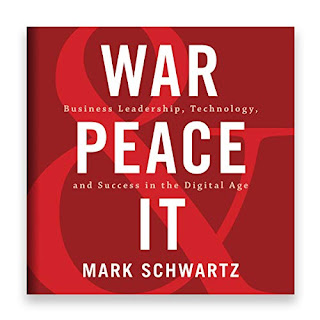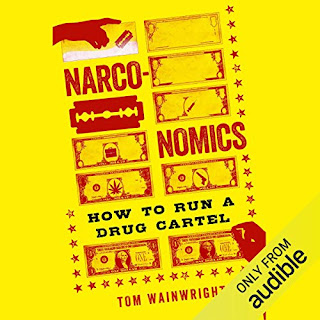GOALS, TARGETS, OKR AND KPI - AND SMART OBJECTIVES
(a goal without a plan is just a wish)
THEORY
Most people will agree that goals are a good thing. They aid focus, help us grow and possibly give us purpose. But a goal without a plan is just a wish. If we are planning then we probably need a target and a method to measure progress, which is why we need OKR and KPI and SMARTER objectives.
OKR is the acronym for objective and key results. It is future focussed: An Objective tells you where to go, and a Key Result describe the components of success. These tend to be broad and ambitious. Google says the “sweet spot” for an OKR grade is 60% – 70%; if someone consistently fully attains their objectives, their OKRs aren’t ambitious enough and they need to think bigger
KPIs are used to evaluate performance over time for an organization, individual, program, project, action, etc. They look at the past and measure how well we did. They are a measurable value that demonstrates how effectively a company is achieving key business objectives. Selecting the right one will depend on your industry and which part of the business you are looking to track. Each department will use different KPI types to measure success based on specific business goals and targets.
SMARTER Objectives tend to be more narrow, personal and specific and often used in annual task setting and performance review and appraisal.
S >pecific (simple, sensible, significant).
M >easurable (meaningful, motivating).
A >chievable (agreed, attainable).
R >elevant (reasonable, realistic and resourced, results-based).
T >ime bound (time-based, time limited, time/cost limited, timely, time-sensitive).
E >valuated
R >eviewed.
PRACTICAL APPLICATION
To avoid talking about something that is industry specific I am going to offer an example from rowing.
Objective: Be a world-class rower
Key Result: Achieve top 10 of your class (age-group, gender or classification) in 2020 European Champs, Irish Champs, GB Champs, or other premium class event.
Key Performance Indicator (Something you can measure)
KPI No1: Strength - able to squat 1.5 x body weight
KPI No2: Power - able to hold 220 watts over 40 minute effort on water or 300 watts over 40min effort on rowing machine
KPI No3: Aerobic Capacity - VO2Max over 50
KPI No4: Speed - able to row 2000 meters < 7mins or 5000 meters <38mins on rowing machine
CSF = Critical Success Factors (What is important)
What will help the above
> Clear purpose, vision and commitment
> Clear understanding of success factors eg strength, flexibility, technique, mental focus
> Good coaching eg to improve strength, flexibility, technique, mental focus
> Good management and administration eg to get you to the start-line
> Good data eg heart-rate, power, video technique
> Culture, Communication and Trust
> Good training environment indoors (rowing machine) and outdoors
> Good equipement: Boat, Oars, Clothes etc.
> Flexibility
> Confidence
> Communication - cultural behaviours and knowing MBTI or DICS personality and those of team-mates and coach
>Mental Resilience - coping mechanisms, habits and rituals
> Compatible team-mates
What will hinder the above
> Poor sleep, diet, or hydration
> Too many distractions
> Poor prioritisation of time/effort
> Poor focus, stress, confusion
> Fear or uncertainty
For any factor above which may appear vague (example confidence) try to create SMARTER criteria and use a diary to keep yourself on track
S >pecific (simple, sensible, significant): I will be more confident by noting all my successes and learning from failures
M >easurable (meaningful, motivating): I will maintain a diary of each good thing, lesson or improvement
Achievable (agreed, attainable): I will update this weekly, and share examples with my coach
R >elevant (reasonable, realistic and resourced, results-based): I will focus on those elements which will improve me as an athlete
T >ime bound (time-based, time limited, time/cost limited, timely, time-sensitive): I will do this for 90 days, and then review
E >valuated: I will each day score 1 to 10 how confident I feel about my rowing technique/strength/power [choose what is relevant]
R >eviewed:I will review this afer 90 days to see if there has been an improvement over the period
If you have a different perspective or experience please comment below. If you are interested in OKR KPI SMARTER or performance management get in touch.
TimHJRogers
Helping people and organisations get things done
Adapt Consulting Company
Consult CoCreate Deliver
@AdaptCCompany +447797762051
REFERENCES
OKRs Vs. KPIs: Breaking Down The Difference
https://www.clearpointstrategy.com/okrs-vs-kpis/
OKR vs. KPI: How they compare and how they work together
https://www.perdoo.com/resources/okr-vs-kpi/
What Are Smart Objectives And How Do I Apply Them?
https://www.professionalacademy.com/blogs-and-advice/what-are-smart-objectives-and-how-do-i-apply-them






































































































































































